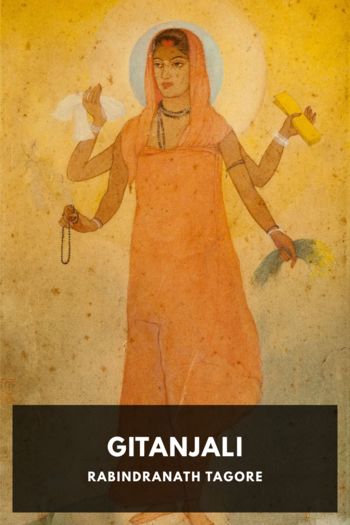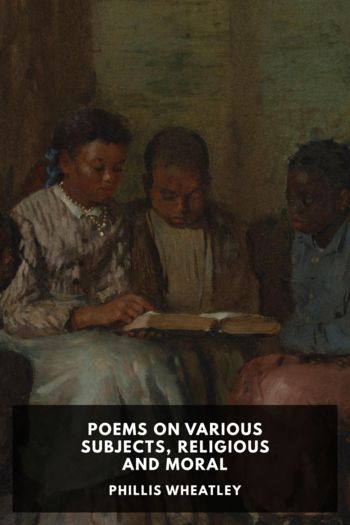My Reminiscences by Rabindranath Tagore (free children's ebooks pdf .TXT) 📕

- Author: Rabindranath Tagore
Book online «My Reminiscences by Rabindranath Tagore (free children's ebooks pdf .TXT) 📕». Author Rabindranath Tagore
On one side was the European Flotilla Company, on the other my brother Jyotirindra alone; and how tremendous waxed that battle of the mercantile fleets, the people of Khulna and Barisal may still remember. Under the stress of competition steamer was added to steamer, loss piled on loss, while the income dwindled till it ceased to be worth while to print tickets. The golden age dawned on the steamer service between Khulna and Barisal. Not only were the passengers carried free of charge, but they were offered light refreshments gratis as well! Then was formed a band of volunteers who, with flags and patriotic songs, marched the passengers in procession to the Indian line of steamers. So while there was no want of passengers to carry, every other kind of want began to multiply apace.
Arithmetic remained uninfluenced by patriotic fervour; and while enthusiasm flamed higher and higher to the tune of patriotic songs, three times three went on steadily making nine on the wrong side of the balance sheet.
One of the misfortunes which always pursues the unbusinesslike is that, while they are as easy to read as an open book, they never learn to read the character of others. And since it takes them the whole of their lifetime and all their resources to find out this weakness of theirs, they never get the chance of profiting by experience. While the passengers were having free refreshments, the staff showed no signs of being starved either, but nevertheless the greatest gain remained with my brother in the ruin he so valiantly faced.
The daily bulletins of victory or disaster which used to arrive from the theatre of action kept us in a fever of excitement. Then one day came the news that the steamer Swadeshi had fouled the Howrah bridge and sunk. With this last loss my brother completely overstepped the limits of his resources, and there was nothing for it but to wind up the business.
XLII BereavementsIn the meantime death made its appearance in our family. Before this, I had never met Death face to face. When my mother died I was quite a child. She had been ailing for quite a long time, and we did not even know when her malady had taken a fatal turn. She used all along to sleep on a separate bed in the same room with us. Then in the course of her illness she was taken for a boat trip on the river, and on her return a room on the third storey of the inner apartments was set apart for her.
On the night she died we were fast asleep in our room downstairs. At what hour I cannot tell, our old nurse came running in weeping and crying: “O my little ones, you have lost your all!” My sister-in-law rebuked her and led her away, to save us the sudden shock at dead of night. Half awakened by her words, I felt my heart sink within me, but could not make out what had happened. When in the morning we were told of her death, I could not realize all that it meant for me.
As we came out into the verandah we saw my mother laid on a bedstead in the courtyard. There was nothing in her appearance which showed death to be terrible. The aspect which death wore in that morning light was as lovely as a calm and peaceful sleep, and the gulf between life and its absence was not brought home to us.
Only when her body was taken out by the main gateway, and we followed the procession to the cremation ground, did a storm of grief pass through me at the thought that mother would never return by this door and take again her accustomed place in the affairs of her household. The day wore on, we returned from the cremation, and as we turned into our lane I looked up at the house towards my father’s rooms on the third storey. He was still in the front verandah sitting motionless in prayer.
She who was the youngest daughter-in-law of the house took charge of the motherless little ones. She herself saw to our food and clothing and all other wants, and kept us constantly near, so that we might not feel our loss too keenly. One of the characteristics of the living is the power to heal the irreparable, to forget the irreplaceable. And in early life this power is strongest, so that no blow penetrates too deeply, no scar is left permanently. Thus the first shadow of death which fell on us left no darkness behind; it departed as softly as it came, only a shadow.
When, in later life, I wandered about like a madcap, at the first coming of spring, with a handful of half-blown jessamines tied in a corner of my muslin scarf, and as I stroked my forehead with the soft, rounded, tapering buds, the touch of my mother’s fingers would come back to me; and I clearly realised that the tenderness which dwelt in the tips of those lovely fingers was the very same as that which blossoms every day in the purity of these jessamine buds; and that whether we know it or not, this tenderness is on the earth in boundless measure.
The acquaintance which I made with Death at the age of twenty-four was a permanent one, and its blow has continued to add itself to each succeeding bereavement in an ever lengthening chain of tears. The lightness of infant life can skip aside from the greatest of calamities, but with age evasion is not so easy, and the shock of that day I had to take





Comments (0)